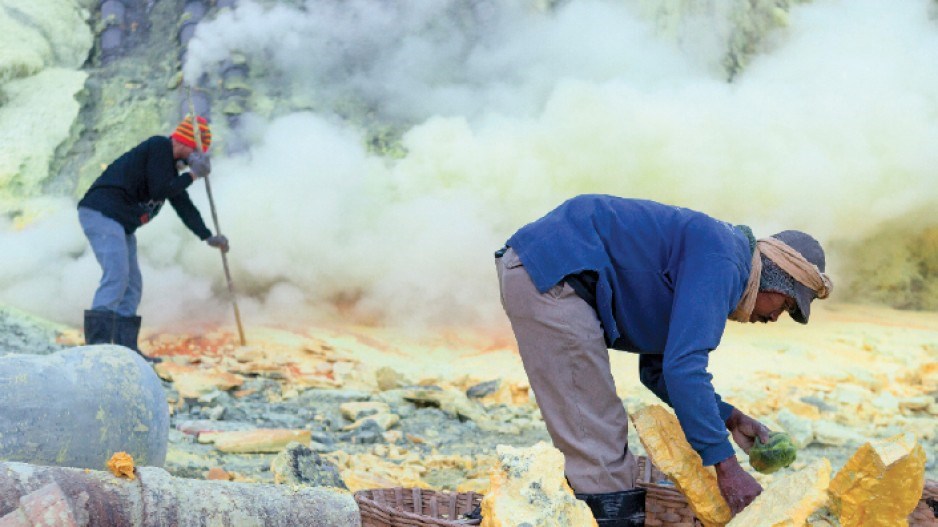An hour before Indonesia's ban on the export of unprocessed mineral ores came into effect on January 12, President Susilo Bambang Yudhoyono signed a decree watering down the regulations.
Some concession was expected as the government faced sustained opposition from the international mining industry to the economic nationalist bill passed in 2009, and intended to force miners to build refineries in Indonesia.
But Yudhoyono's climb-down, while embarrassing, is minimal. Its major impact is to pass this can of worms to the next government, which will emerge from parliamentary elections in April and presidential elections in July.
International observers of Indonesia are predicting an extended period of uncertainty around the Indonesian mining industry, and a growing reluctance among multinational mining companies to invest in the sector.
It was the threat by two United States-based multinationals, Freeport McMoRan Copper and Gold and Newport Mining Corp., which together extract about 97% of Indonesia's copper production, to close down their operations, putting hundreds of people out of work, that prompted Yudhoyono to modify the regulations.
Miners of partially processed copper, iron, zinc, lead and manganese will be allowed to export concentrate until 2017, when they will be required to have full smelters in operation. Most already process ore into concentrate for ease of transport. However, the immediate ban remains on the export of unprocessed bauxite, nickel, tin, chromium, gold and silver.
Added to the political uncertainty is the likelihood of legal challenges. The Supreme Court recently struck down regulations to the 2009 law passed in 2012. Since the transition to democracy in 1999, Indonesians have shown strong possessive and protective instincts toward their abundant natural resources. This stems in part from the ravishing of Indonesia's natural bounty by the cronies of President Suharto during his 30-year dictatorship.
The aim of the 2009 law was to force domestic and foreign mining companies to use the five years before the law came into effect to build refineries in Indonesia.
The government's argument was that this would create jobs and significant knock-on benefits for the Indonesian economy. But the law was poorly implemented and its regulations unclear. The mining companies and other opponents spent the five years arguing against the law.
Opponents contend that building a domestic smelting industry is not cost efficient. A smelter takes up to five years to build at a cost of up to $4 billion. It also requires large investments in infrastructure, especially power supply and transportation.
Profits from smelting are thin, and it would be many years before the Indonesian investments saw any returns.
Also, Indonesia, despite some progress in regulatory reforms, remains a difficult country to get approval for major projects. Land acquisition laws, especially for foreign companies, are difficult to navigate and profusely decorated with red tape. Obtaining the necessary permissions to build a smelter is a long and arduous process.
The short-term impact of the ban on the export of unprocessed ores is likely to be dramatic. Even the ban's strongest advocate, the co-ordinating minister for economic affairs, estimated the ban would reduce exports by $4 billion this year.
The World Bank's estimate is higher – $6 billion this year and $8 billion a year by 2017 if miners fail to build smelters.
The Indonesian Chamber of Commerce estimates that up to 800,000 workers in the mining industry will lose their jobs in coming months as a result of the ban.
And the U.S. government has pointed out that there is already an oversupply of smelters worldwide, making it highly unlikely an Indonesian smelter industry could function profitably or efficiently. •
Indonesian elections set to spawn uptick in economic nationalism
As matters stand, parliamentary and presidential elections in Indonesia this year are likely to produce a government strongly attached to economic nationalism and suspicious of foreign investment.
Recent polls show the Indonesian Democratic Party of Struggle (PDI-P), led by former president and staunch economic nationalist, Megawati Sukarnoputri, with a clear lead ahead of April's parliamentary elections.
The PDI-P is backed by small-business owners and traders, who have infused the party's economic policy with strong support for economic self-sufficiency.
The PDI-P's support has been growing consistently over recent months and now stands at about 29%, a clear lead over Golkar, which is stuck at about 21%, and retiring President Susilo Bambang Yudhoyono's Partai Demokrat (PD) at 14%. This picture might change substantially, however. There are signs of a pending alliance between Yudhoyono's PD and the party close behind with 12% support, Partai Gerindra, led by the highly controversial former general Prabowo Subianto, who is the son-in-law of Indonesia's last dictator, President Suharto.
Like Megawati, Prabowo is a strong economic nationalist.
Even less clear is who is likely to be elected president in July.
Indonesians, according to the polls, are clear whom they want. Joko "Jokowi" Widodo, the charismatic governor since 2012 of Indonesia's problem-plagued capital, Jakarta, has steadily growing popular support, which now stands at nearly 45% in polls.
This puts him well ahead of the No. 2 candidate in the polls, former general Prabowo, with 15% support.
It is by no means certain, however, that Jokowi will get the chance to run. He is a member of Megawati's PDI-P, and she is said to have a hankering to run again for the presidency, even though her support in polls languishes at about 5%. If she does run, Jokowi, who, despite his popularity, is a relatively inexperienced politician, may be her vice-presidential candidate.
That would give a boost to Prabowo's candidacy and could give him the presidency. Prabowo is no fan of liberal economics, privatization or the "undue influence of foreign companies."




